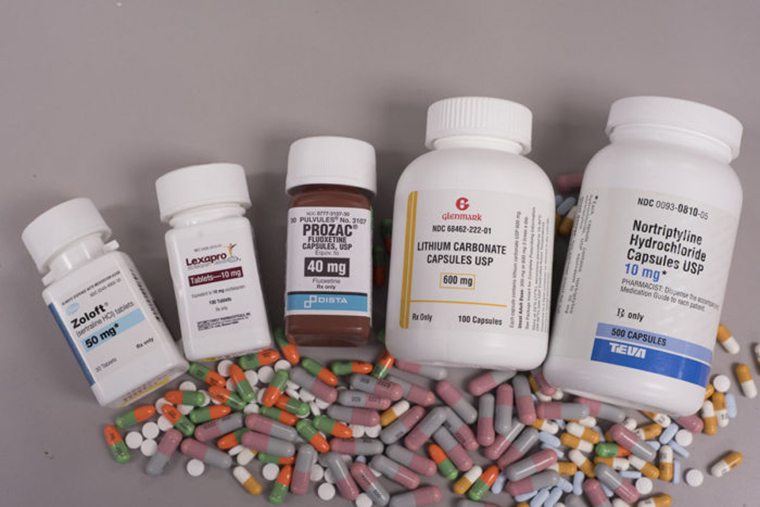

You may be referred to a group exercise class.įind out more about walking for health and exercise for depression. There's evidence that exercise can help depression, and it's one of the main treatments for mild depression. In this case, you'll be seen again by the GP after 2 weeks to monitor your progress. If a GP diagnoses you with mild depression, they may suggest waiting a short time to see if it gets better by itself. If you have mild depression, the following treatments may be recommended. The treatment recommended will be based on the type of depression you have. Some of the newer psychopharmacology options that may work with the brain for the neurotransmitters nutrient replenishment include: Vilazodone HCL (Viibryd), an approved SSRI and 5-HT 1A receptor partial agonist and L-Methylfolate (Deplin), a folate (B vitamin) supplement.Treatment for depression usually involves a combination of self-help, talking therapies and medicines.Because of these potentially serious drug and food interactions, MAOIs are usually only prescribed after other treatment options have failed. MAOIs can interact with over-the-counter cold and cough medications to cause dangerously high blood pressure. Monoamine oxidase inhibitors (MAOIs) are the earliest developed antidepressants.Examples of tricyclic antidepressants are amitriptyline and desipramine. However takeN in excess, TCAs can cause life-threatening heart-rhythm disturbances. TCAs are safe and generally well-tolerated when properly prescribed. They work mainly by increasing the level of norepinephrine in the brain. Tricyclic antidepressants (TCAs) were developed in the 1950s and 1960s to treat depression.They have been used to treat bipolar depression and they are sometimes used “off-label” for some forms of anxiety and depression. Mood stabilizers and anticonvulsants include lithium (Eskalith, Lithobid), Valproate (Depakene, Depakote), Carbamazepine (Epitol, Tegretol), Gabapentine (Neurontin), and Lamotrigine (Lamictal).Examples of atypical antidepressants include Bupropion (Wellbutrin), Nefazodone (Serzone), and Trazodone (Desyrel). Atypical antidepressants are so named because they work in a variety of ways.It may stimulate the appetite and thus cause weight gain for some at higher doses. Although Mirtzazpine is primarily an antidepressant for major depression, it also has been found beneficial for anxiety and insomnia. Venlafaxine (Effexor), Duloxetine (Cymbalta), and Desvenlafaxine (Pristiq) are three of these dual-action compounds. Some of the newer antidepressant drugs appear to have particularly robust effects on both the norepinephrine and serotonin systems and are called “dual-action.” These drugs seem to be very helpful, especially for the more severe and chronic cases of depression. Examples of SSRIs include Fluoxetine (Prozac), Paroxetine (Paxil), Sertraline (Zoloft), Citalopram (Celexa), Fluvoxamine (Luvox), and Escitalopram (Lexapro). Therefore, SSRIs are often the first-line treatment for depression. SSRIs have fewer side effects than many of the older generation antidepressants, such as the tricyclic antidepressants (TCAs) and monoamine oxidase inhibitors (MAOIs). They are called selective because they mostly impact serotonin and not other neurochemicals. People with depression often have low serotonin levels in the brain, and as their name implies, the SSRIs work by blocking the reabsorption of serotonin so it stays around. Selective serotonin reuptake inhibitors (SSRIs) are medications that increase the amount of the neurochemical serotonin in the brain.In addition, your medication needs can change with time and circumstance, so it is important to keep paying attention to how you feel and how the medication impacts that. Medications can take weeks or even months to have an impact, and it sometimes takes a long time to find the correct type and dosage. Work with your provider to identify the type of medication that may work for your symptoms, and track the effect of the medication(s) closely. Repeated episodes of depressions, especially if they occur without any particular triggerĪs with psychotherapy and integrative therapies, medication should be individualized to your particular condition and physiology.A severe sleep disturbance that does not improve with natural therapies.Mild depression that has not improved within six to eight weeks of trying natural therapies.Moderate depression that has not improved within three to four weeks of trying natural therapies.Severe depression that makes it hard to function in daily life or is accompanied by suicidal or self-destructive thoughts.

According to Henry Emmons in his book The Chemistry of Joy, you should consider taking medications if you have any of the following symptoms:


 0 kommentar(er)
0 kommentar(er)
